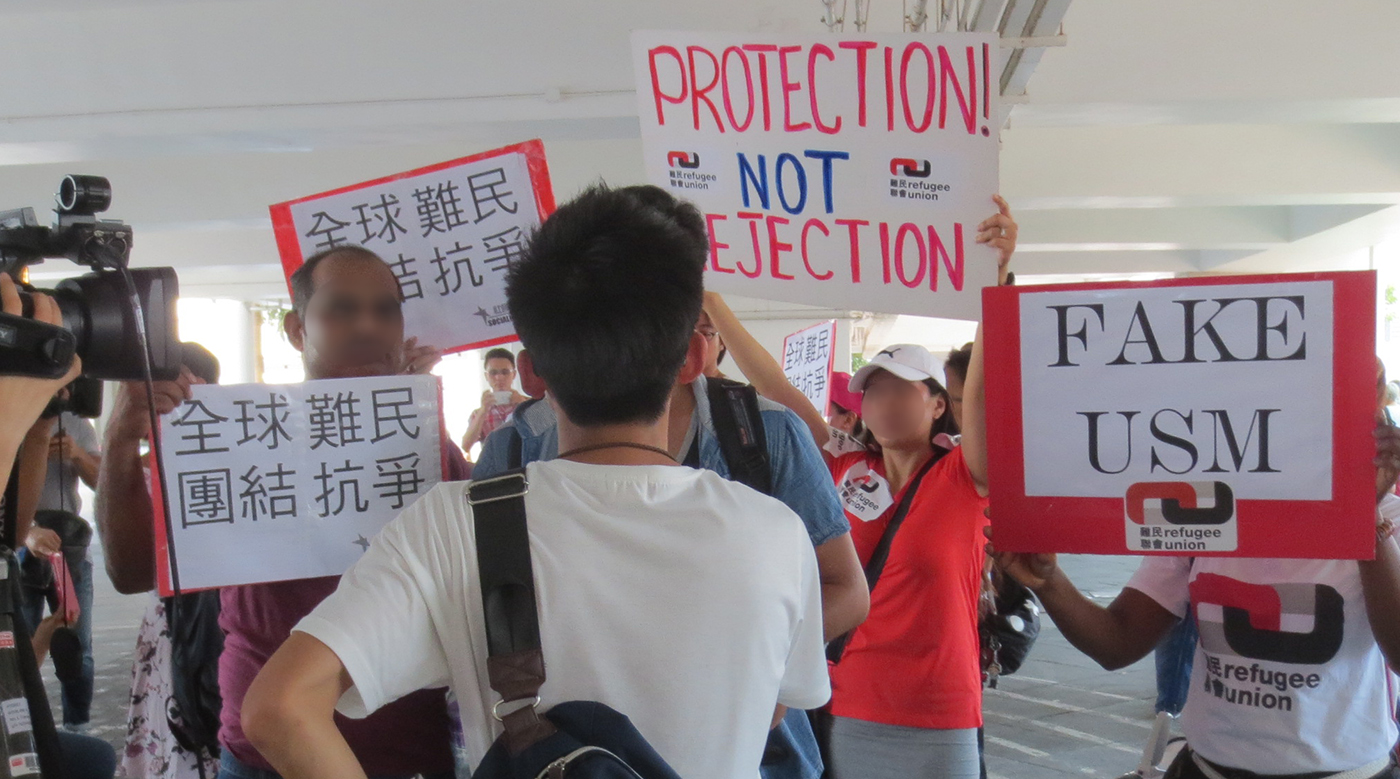
The Unified Screening Mechanism (USM) was introduced on 3 March 2014 “to determine claims for non-refoulement protection against expulsion, return or extradition from Hong Kong to another country on applicable grounds including risks of torture … cruel, inhuman or degrading treatment or punishment … and persecution”. It replaced a much maligned two-track system that combined Immigration and UNHCR, which was found wanting by the courts.
Although the development might appear as an improvement to most observers, refugees’ dissatisfaction with USM is growing. An effective zero percent acceptance rate persists; one which saw just 28 successful cases out of 20,000 application since the UN Convention against Torture was extended to Hong Kong in 1992 – or exactly 0.14%. Refugees know that statistics do matter.
As Hong Kong did not accede to the UN Refugee Convention, direct comparisons with country states are unsatisfactory. Nevertheless, success rates in developed countries average 20 to 40% yearly, with Australia at 48% and Canada at 50% despite stricter policies “discouraging bogus asylum seekers and sending them home more quickly”. Is Hong Kong intentionally an asylum black hole?
Refugees seeking sanctuary in Asia’s World City struggle to reconcile the offer of protection with the effective rejection of 99.86% of claims. As a refugee stranded here for 10 years put it, “What’s the point of USM? It’s like torture screening before: nobody wins their case. My torture claim was rejected but I cannot go to another place because my passport expired. Hong Kong does not accept me so I am stateless. Refugees are refused and left to rot in poverty.”
The thin hope sustaining refugees in limbo sadly borders on delusion. On the one hand, they know their asylum bid will fail, but on the other, they cannot give up, because “hope is all that is left.” In the face of overwhelming odds, refugees keep waiting for a positive outcome supported more by faith, than a critical understanding of a system ostensibly intended to guarantee rejection.
In the words of a refugee mother, “It’s a fake system! It looks prim and proper with thick documents and reams of files, with duty lawyers and fancy titles, but the result is always the same. ‘Your case is not substantiated’, says Immigration. You are refused. They tell you to bring your suitcase to CIC (detention) for removal. They want to send everyone back. Perhaps my case was not strong, but how about the other 2000 they will close this year?”
The Government is blunt and makes no secret of an overt policy, “Non-refoulement claims lodged under the USM are not asylum claims … The Government maintains a firm policy of not granting asylum to or determining the refugee status of anyone … Our policy objective is to screen non-refoulement claims effectively and … to remove rejected claimants from Hong Kong as soon as possible.”
The message is clear – Hong Kong does not grant asylum. USM could be viewed as an arrangement to suspend the repatriation of claimants until refused or, if substantiated, until “the risk giving rise to the claim has ceased to exist (and …) ImmD will consider revoking his non-refoulement protection and removing him from Hong Kong.” According to such a policy, successful USM claimants are tolerated until conditions in the risk state become safe to repatriate. The circle is then closed by an agreement with UNHCR to resettle successful persecution claimants.
While refugees lament that the USM is fake, there is however consistency between the words spoken and the actions taken by the authorities. Branded collectively as illegal immigrants, refugees are treated as delinquents at worst, or a nuisance at best, to be removed as expeditiously as possible by the Immigration Department that “handles every step of the screening procedures in accordance with the high standards of fairness required by law”.
Perhaps the USM is not fake. Perhaps it achieves the results envisioned by its architects, whose irritation might be reflected by an appeal magistrate who reportedly castigated a refugee stranded since 2004: “Why you come to Hong Kong? You asylum seekers are a problem for us … We are giving you everything … Do you want a 5 star hotel?” The judge then abruptly rose and adjourned the case. Will this refugee have to wait another decade before receiving protection?



As a prison chaplain I am saddened to see more and more asylum seekers in prison ….with many graduating from illegal working and petty crime to more serious offences like drug trafficking.
This is a lose-lose situation for both the asylum seekers and HK society.
I think it’s time to shut the door, like Singapore. No more asylum seekers. Then maybe something can be done for the 6,000 stranded here: give refugee papers to the genuine refugees (so they can qualify for re-settlement in other countries), help some to return to their own countries – with a donation to help them re-start their lives, allow others to stay here.
Leaving the door opens just means the black hole gets ever blacker.
c.f. http://www.oneminuteenglish.com/mp/2014/2014-12-02time-to-shut-door-to-asylum-seekers.htm